Unleash your inner maverick and dive into a world where imagination meets innovation, as we explore 15 cutting-edge business ideas that could redefine your entrepreneurial journey. In today’s fast-paced business landscape, the rise of creative entrepreneurship has opened up a realm of possibilities for those daring enough to think outside the box. Gone are the days when traditional business models reigned supreme; now, it’s the innovators and dreamers who are carving out their own paths to success.
But what exactly is a creative entrepreneur? Picture a visionary who blends artistic flair with business acumen, someone who sees opportunity where others see obstacles. These trailblazers are the ones who fuel innovation and success through creative thinking in entrepreneurship, constantly pushing the boundaries of what’s possible in the business world.
In an era where uniqueness is currency, the importance of innovation cannot be overstated. It’s the secret sauce that gives businesses their competitive edge, allowing them to stand out in a crowded marketplace. Creative entrepreneurs are the chefs mixing up this potent concoction, seasoning their ventures with fresh ideas and bold strategies.
So, buckle up, aspiring moguls and visionaries! We’re about to embark on a whirlwind tour of 15 innovative business ideas that could spark your next big venture. From the digital realm to sustainable solutions, and immersive experiences that’ll blow your mind, we’ve got a smorgasbord of inspiration coming your way. Let’s dive in and see what the future of entrepreneurship has in store!
Digital and Tech-Based Creative Ventures
In this digital age, technology is the playground where creative entrepreneurs can let their imaginations run wild. Let’s explore five tech-savvy business ideas that are reshaping the entrepreneurial landscape.
1. Virtual Reality Experience Designer
Picture this: You’re an art entrepreneur turning creativity into a thriving business, but instead of canvases and paintbrushes, your medium is virtual reality. As a VR Experience Designer, you’re crafting immersive worlds that transport users to realms beyond their wildest dreams. From virtual art galleries that defy the laws of physics to interactive historical recreations, the possibilities are as limitless as your imagination.
But here’s the kicker – it’s not just about creating pretty pictures. Oh no, my friend. You’re designing experiences that engage all the senses, that make people feel things they’ve never felt before. Imagine collaborating with museums to create virtual tours that bring ancient civilizations to life, or working with therapists to develop calming environments for anxiety relief. The potential applications are mind-boggling!
2. AI-Powered Art Generator
Now, let’s get a little controversial, shall we? Picture an AI system that can create stunning artwork based on text prompts. Sounds like science fiction, right? Well, welcome to the future, baby! As an innovative entrepreneur pioneering business solutions for the future, you could develop and market an AI art generator that pushes the boundaries of creativity.
But here’s where it gets interesting – your role isn’t to replace human artists, but to empower them. Your AI could be a tool for inspiration, helping artists overcome creative blocks or explore new styles. Imagine fashion designers using it to generate unique patterns, or game developers creating vast, detailed worlds in a fraction of the time. The key is to position your AI as a collaborator, not a competitor, in the creative process.
3. Personalized Digital Storytelling Platform
In a world where content is king, why not give people the power to create their own kingdoms? A personalized digital storytelling platform could revolutionize how we consume and create narratives. Think of it as a choose-your-own-adventure book on steroids, powered by AI and user preferences.
As the mastermind behind this platform, you’d be enabling users to craft interactive stories where their choices shape the narrative. But here’s the twist – the platform learns from user behavior, tailoring the story elements to individual tastes. Love romance with a dash of sci-fi? The algorithm’s got you covered. Prefer your mysteries with a comedic touch? Coming right up! You’re not just selling a product; you’re offering a unique, ever-evolving storytelling experience.
4. Blockchain-Based Creative Marketplace
Alright, let’s talk blockchain, baby! But forget cryptocurrencies for a second. Imagine a decentralized marketplace where creatives can sell their digital works directly to consumers, with every transaction securely recorded on the blockchain. As the brains behind this operation, you’re revolutionizing how artists, musicians, and writers monetize their work.
The beauty of this idea? It cuts out the middlemen, ensuring creators get a fairer share of the profits. Plus, with blockchain technology, you can implement smart contracts that automatically pay royalties to artists whenever their work is resold. It’s not just a marketplace; it’s a whole new ecosystem for the creative economy. Now that’s what I call fueling innovation and business success through creativity in entrepreneurship!
5. Augmented Reality Fashion Designer
Fashion meets tech in this cutting-edge business idea. As an AR fashion designer, you’re not just creating clothes – you’re crafting digital overlays that transform ordinary outfits into extraordinary fashion statements. Imagine an app that lets users virtually try on your designs, seeing how they look in real-time as they move.
But why stop there? Your AR fashion could react to the environment – changing color with the weather, or lighting up in sync with music at concerts. You could collaborate with traditional fashion brands to create hybrid collections, part physical, part digital. It’s not just about looking good in the real world anymore; it’s about making a statement in the merged reality of the physical and digital realms.
Sustainable and Eco-Friendly Creative Businesses
As the world becomes increasingly conscious of environmental issues, creative entrepreneurs have a unique opportunity to make a difference while building successful businesses. Let’s explore five eco-friendly ventures that combine sustainability with creativity.
6. Upcycled Art and Furniture Creator
Picture this: You’re standing in a workshop, surrounded by discarded materials – old furniture, scrap metal, broken electronics. To most, it’s junk. But to you? It’s a goldmine of creative potential. As an upcycled art and furniture creator, you’re not just making beautiful things; you’re giving new life to forgotten objects.
Your creations could range from quirky lamps made from old camera parts to sleek coffee tables crafted from reclaimed wood and industrial scraps. But here’s the kicker – each piece tells a story. That chair? It used to be a vintage car seat. That bookshelf? Once upon a time, it was a ladder in a fire station. You’re not just selling furniture; you’re selling history, creativity, and a commitment to sustainability all rolled into one.
7. Eco-Friendly Event Planning Service
Who says parties can’t be kind to the planet? As an eco-friendly event planner, your mission is to throw unforgettable bashes that leave lasting memories, not lasting damage to the environment. From weddings to corporate events, you’re the go-to guru for green gatherings.
But this isn’t about slapping some recycling bins around and calling it a day. Oh no, you’re taking it to the next level. Imagine serving up gourmet meals made from rescued food that would otherwise go to waste. Picture decor crafted from living plants that guests can take home and grow. Even the invitations are eco-friendly – think seeded paper that can be planted after the event. You’re not just planning parties; you’re cultivating a movement towards sustainable celebrations.
8. Sustainable Fashion Brand with a Twist
Fast fashion? More like “last” fashion, because it’s time for something new. Your sustainable fashion brand isn’t just about using organic materials or ethical production methods (though that’s part of it). You’re revolutionizing the very concept of fashion consumption.
Here’s the twist: your clothes are designed to be modular and multifunctional. That dress? It can transform into a skirt, a top, and even a bag. Those pants? They zip off into shorts, with the leftover fabric becoming a vest. You’re not just selling clothes; you’re selling a wardrobe that evolves with the wearer’s needs. It’s fashion that’s kind to the planet and to the consumer’s wallet. Now that’s what I call driving business success through creative thinking and entrepreneur innovation!
9. Green Urban Gardening Consultant
In the concrete jungle, you’re the expert in creating oases of green. As a green urban gardening consultant, you’re not just helping people grow plants; you’re cultivating a revolution in urban living. Your clients range from apartment dwellers looking to start a balcony herb garden to corporations wanting to install rooftop farms.
But here’s where you stand out: you’re not just about aesthetics. Your gardens are functional ecosystems. You design vertical gardens that act as natural air purifiers in office buildings. You create community gardens that double as outdoor classrooms for local schools. You’re even experimenting with hydroponic systems that can grow food in the smallest of spaces. In your hands, every inch of the city becomes an opportunity for sustainable growth.
10. Biodegradable Product Designer
Plastic is so last century. As a biodegradable product designer, you’re crafting the materials of the future. Your products aren’t just eco-friendly; they’re eco-fantastic! From packaging that dissolves in water to disposable cutlery that can be composted (and might even contain seeds to grow new plants), you’re reimagining everyday items with a sustainable twist.
But why stop at the obvious? Your biodegradable innovations could extend to surprising areas. Imagine festival tents that naturally decompose after use, returning nutrients to the soil. Or how about fishing nets that break down if lost at sea, reducing ocean pollution? You’re not just designing products; you’re engineering solutions for a cleaner, greener world.
Experience-Based Creative Entrepreneurship
In a world where people crave unique experiences over material possessions, creative entrepreneurs have a golden opportunity to craft unforgettable moments. Let’s dive into five business ideas that turn imagination into immersive realities.
11. Immersive Theater Production Company
Forget the fourth wall – you’re smashing it to pieces! As the mastermind behind an immersive theater production company, you’re not just putting on shows; you’re creating living, breathing worlds that audiences step into. Your productions blur the line between observer and participant, turning every attendee into a part of the story.
Imagine transforming an abandoned warehouse into a 1920s speakeasy, where the audience becomes part of a Prohibition-era drama. Or picture a sci-fi adventure where participants are “space travelers” exploring an alien world (aka a cleverly designed set). The key is to engage all the senses – maybe the audience has to solve puzzles to progress the plot, or perhaps their choices alter the course of the story. You’re not just selling tickets; you’re offering portals to other realities.
12. Culinary Art Experience Curator
Food isn’t just sustenance; it’s a medium for artistic expression. As a culinary art experience curator, you’re orchestrating gastronomic adventures that tantalize taste buds and boggle minds. Your events are where innovative entrepreneurship revolutionizes business with creativity and vision, turning dining into an unforgettable experience.
Picture this: a “Synesthesia Supper” where each course is paired not just with wine, but with a specific piece of music and a complementary scent. Or how about a “Time Traveler’s Feast” that takes diners on a culinary journey through different historical eras? You could even collaborate with scientists to create futuristic foods – imagine a dessert that changes flavor as you eat it! Your events aren’t just meals; they’re multi-sensory explorations of the art of eating.
13. Themed Escape Room Designer
Escape rooms? Oh honey, you’re taking them to a whole new level. As a themed escape room designer, you’re crafting intricate, immersive puzzles that transport participants to other worlds. But you’re not stopping at the usual suspects like detective offices or mad scientist labs.
How about an escape room set in a “shrinking submarine” where the walls physically close in as time passes? Or picture a room themed around lucid dreaming, where solving puzzles alters the environment in surreal ways. You could even design a series of interconnected rooms that tell an overarching story, encouraging repeat visits. Your escape rooms aren’t just games; they’re narrative experiences that challenge the mind and ignite the imagination.
14. Pop-up Art Installation Organizer
Who says art belongs only in galleries? As a pop-up art installation organizer, you’re bringing creativity to unexpected places, turning the ordinary into the extraordinary. Your mission? To surprise, delight, and make people see their everyday environments in a new light.
Imagine transforming a bustling city square into a giant, interactive board game for a day. Or how about filling an empty storefront with a light and sound installation that responds to pedestrians walking by? You could even organize “guerrilla gallery” events, where artists secretly install works in public spaces overnight, creating a city-wide treasure hunt for art enthusiasts. Your pop-ups aren’t just exhibitions; they’re spontaneous bursts of creativity that shake people out of their daily routines.
15. Personalized Travel Experience Creator
Forget cookie-cutter tours and generic hotel stays. As a personalized travel experience creator, you’re crafting bespoke adventures tailored to each client’s unique interests and dreams. Your role is part travel agent, part life coach, and part magician – making travel wishes come true in unexpected ways.
Here’s where it gets interesting: you’re not just booking flights and hotels. You’re orchestrating serendipitous moments and once-in-a-lifetime experiences. For the history buff, you might arrange a private after-hours tour of ancient ruins. For the adrenaline junkie, how about a mystery adventure where they don’t know what heart-pumping activity awaits each day? You could even collaborate with local artists, chefs, and artisans to provide behind-the-scenes experiences not available to the general public. You’re not selling vacations; you’re curating transformative journeys.
Key Traits of Successful Creative Entrepreneurs
Now that we’ve explored these exciting business ideas, you might be wondering: what does it take to turn these creative concepts into successful ventures? Let’s dive into the key traits that set creative entrepreneurs apart as innovators blending art and business for success.
First and foremost, successful creative entrepreneurs are masters of embracing innovation and calculated risk-taking. They’re not afraid to venture into uncharted territories or challenge the status quo. But here’s the kicker – they don’t just leap blindly. They research, they plan, they consider the potential pitfalls. It’s not about being reckless; it’s about being bold with a backup plan.
Developing a unique value proposition is another crucial trait. In a world saturated with products and services, creative entrepreneurs know how to stand out from the crowd. They don’t just offer solutions; they offer experiences, stories, and emotional connections. They ask themselves: “What can I offer that no one else can?”
Building a strong personal brand goes hand in hand with a unique value proposition. Successful creative entrepreneurs understand that they’re not just selling a product or service – they’re selling themselves and their vision. They cultivate an authentic, compelling persona that resonates with their target audience. It’s not about creating a false image; it’s about amplifying their genuine passion and expertise.
In today’s digital age, leveraging technology and social media is non-negotiable. Creative entrepreneurs don’t just use these tools; they master them. They understand the power of storytelling through Instagram, the reach of targeted Facebook ads, the networking potential of LinkedIn. But they don’t stop at the obvious platforms – they’re always on the lookout for new tech that could give them an edge.
Lastly, and perhaps most importantly, successful creative entrepreneurs are committed to continuous learning and adaptation. They know that the only constant in business is change, and they’re always ready to evolve. They attend workshops, read voraciously, seek mentors, and aren’t afraid to pivot when necessary. Their mindset is not “I know enough,” but rather “What else can I learn?”
Overcoming Challenges in Creative Entrepreneurship
Now, let’s get real for a moment. Creative entrepreneurship isn’t all rainbows and unicorns. It comes with its own set of unique challenges. But fear not! With the right mindset and strategies, these hurdles can become stepping stones to success.
One of the biggest challenges is balancing creativity with business acumen. It’s easy to get lost in the creative process and forget about the bottom line. Successful creative entrepreneurs learn to dance between these two worlds, letting their artistic vision guide them while keeping a keen eye on practical business considerations. It’s not about stifling creativity for profit, but finding innovative ways to make creativity profitable.
Protecting intellectual property is another crucial concern. In a world where ideas can be copied and distributed at the click of a button, safeguarding your creative work is more important than ever. This might involve understanding copyright laws, trademarking your brand, or even patenting unique processes. It’s not the most glamorous part of creative entrepreneurship, but it’s essential for long-term success.
Securing funding for creative ventures can be particularly tricky. Traditional investors might not always understand or appreciate the value of creative businesses. This is where creative entrepreneurs need to get, well, creative! From crowdfunding campaigns to seeking out niche investors who specialize in creative industries, there are ways to find the capital you need. It’s about telling your story in a way that makes people want to be part of your journey.
Scaling a creative business presents its own set of challenges. How do you grow without losing the unique touch that made you successful in the first place? It’s a delicate balance of systemizing processes where possible while maintaining the creative spark that sets you apart. This might involve carefully choosing team members who share your vision, or finding innovative ways to replicate your creative process on a larger scale.
Lastly, staying relevant in a fast-changing market is a constant challenge for creative entrepreneurs. Trends come and go at lightning speed, and what’s hot today might be passé tomorrow. The key is to stay true to your core vision while remaining flexible enough to adapt to changing tastes and technologies. It’s about evolution, not revolution – unless, of course, you’re the one starting the revolution!
Wrapping It Up: The Future of Creative Entrepreneurship
As we come to the end of our whirlwind tour through the landscape of creative entrepreneurship, let’s take a moment to recap the exciting ventures we’ve explored. From virtual reality experience designers pushing the boundaries of digital art, to sustainable fashion brands reimagining our relationship with clothes, to immersive theater productions blurring the lines between audience and performer – the world of creative entrepreneurship is vast and varied.
We’ve seen how AI and blockchain are opening up new frontiers in art and commerce, how sustainability is inspiring innovative business models, and how the hunger for unique experiences is creating opportunities for bold, imaginative entrepreneurs. These 15 ideas are just the tip of the iceberg, a glimpse into the infinite possibilities that await those willing to blend creativity with entrepreneurial spirit.
But what does the future hold for creative entrepreneurship? If the ideas we’ve explored are any indication, we’re heading towards a future where the lines between different industries become increasingly blurred. We’re moving into an era where technology and creativity dance ever closer, where sustainability isn’t just a buzzword but a fundamental business principle, and where experiences trump possessions.
The future belongs to those who can see connections where others see divisions, who can create value from ideas, and who aren’t afraid to challenge conventional wisdom. It belongs to those who understand that in a world of mass production, uniqueness is the ultimate luxury. It belongs to the dreamers, the risk-takers, the ones who see problems as opportunities in disguise.
So, to all


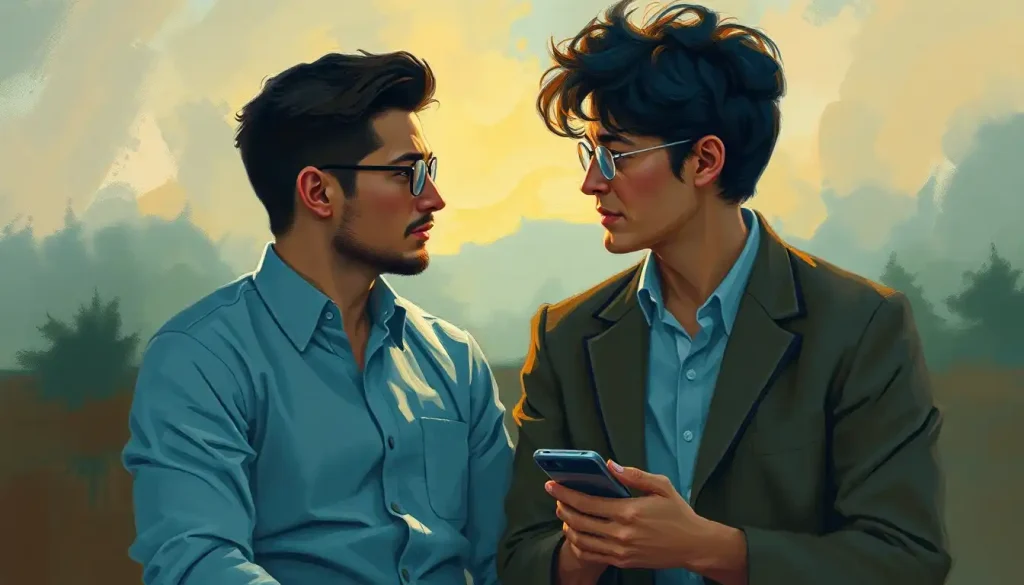
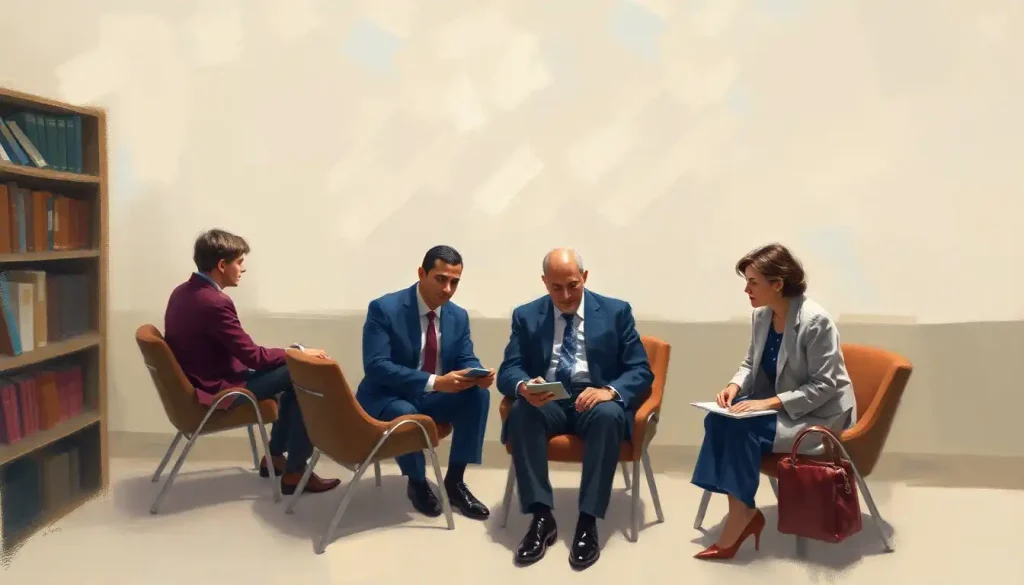
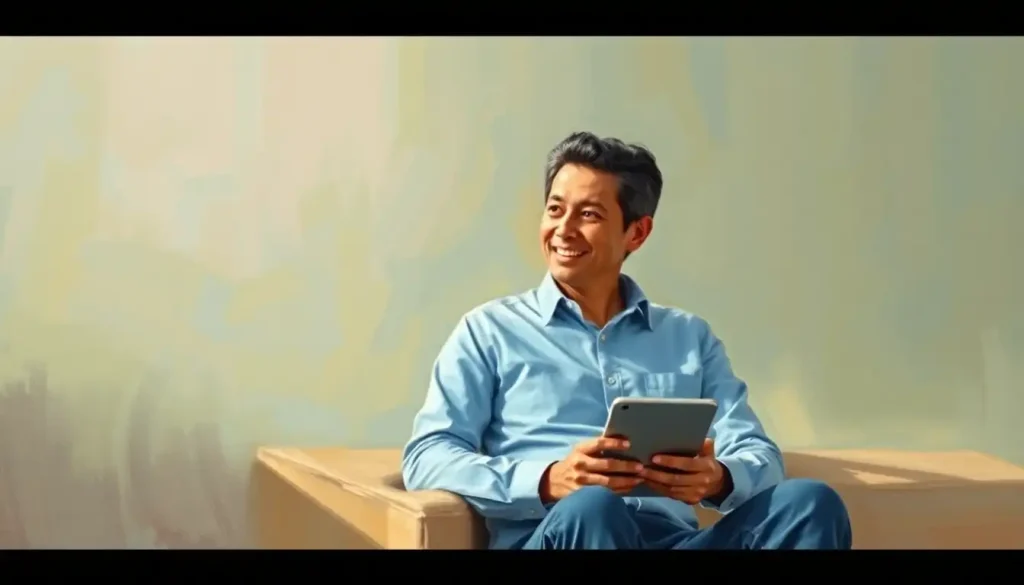
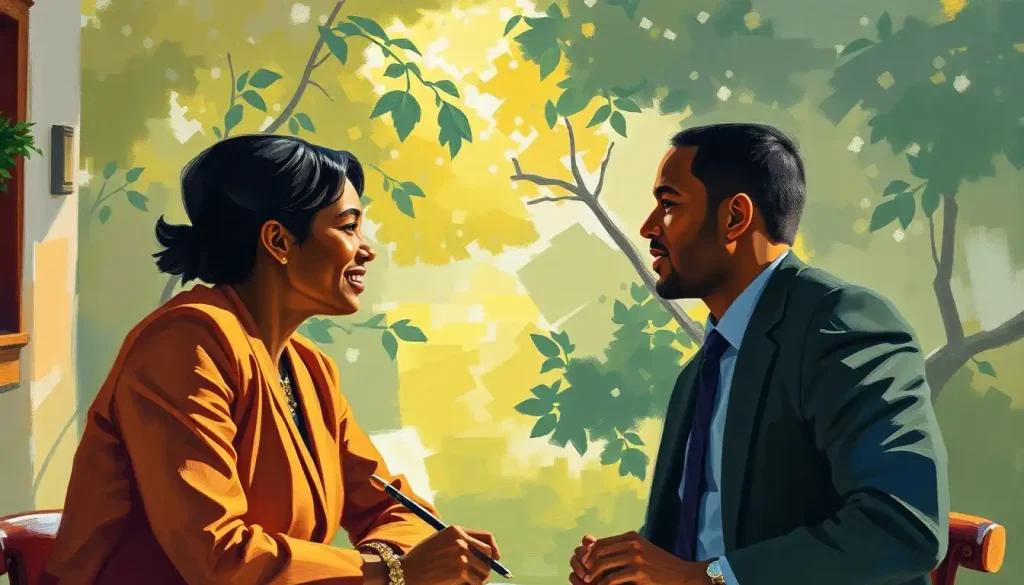


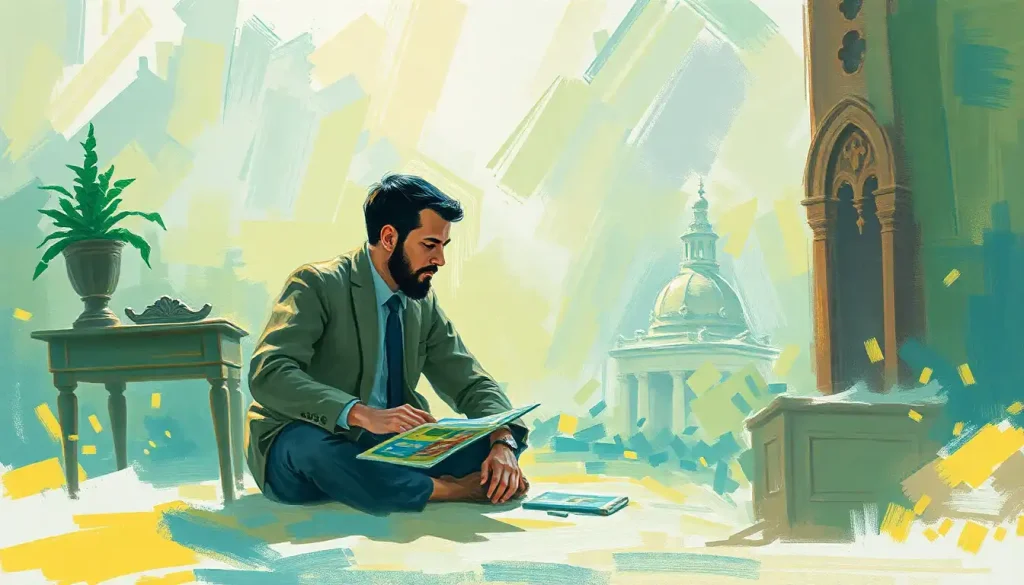

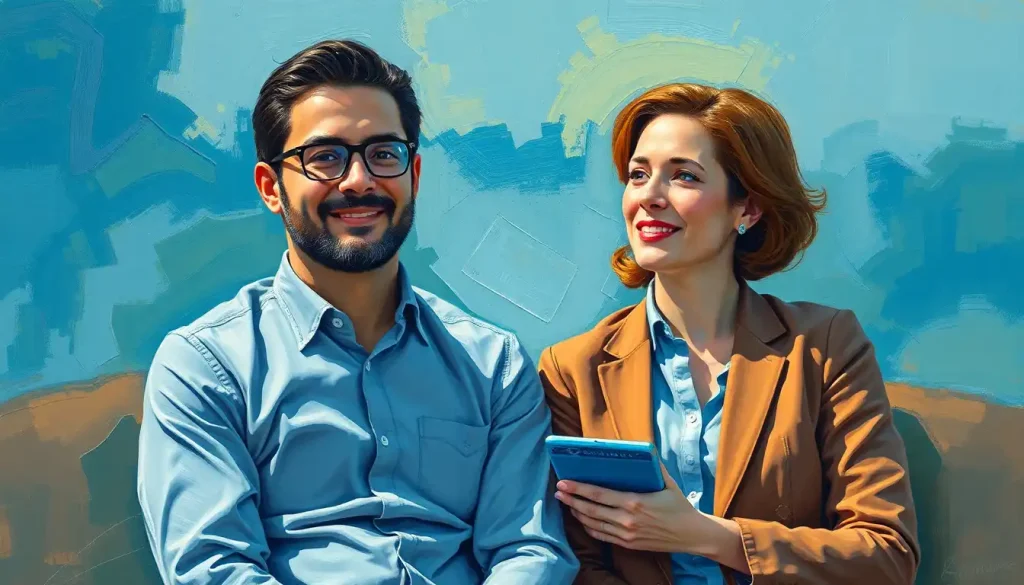
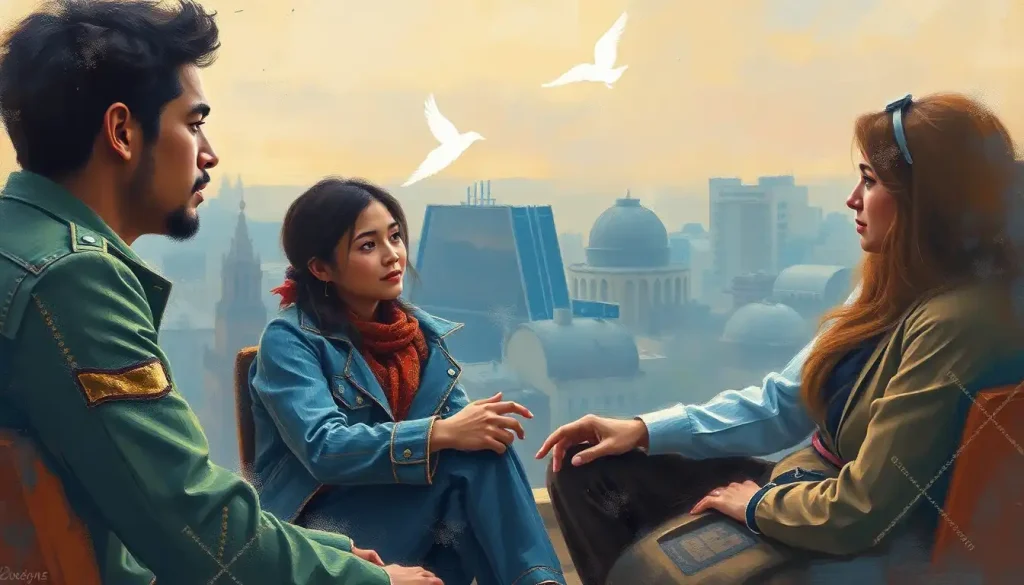
Would you like to add any comments? (optional)